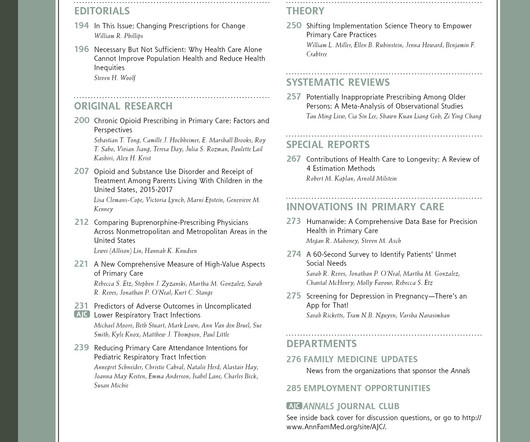Why Concierge, Concierge Doctor, and Concierge Medicine Are Revolutionizing Healthcare (And Why You Should Care)
Plum Health
OCTOBER 6, 2024
Patients with Chronic Conditions Those with chronic conditions often require more frequent visits, follow-ups, and adjustments to their care plans. Some patients find that the cost is actually offset by the reduced need for urgent care visits, fewer hospital admissions, and better overall management of their health.














Let's personalize your content